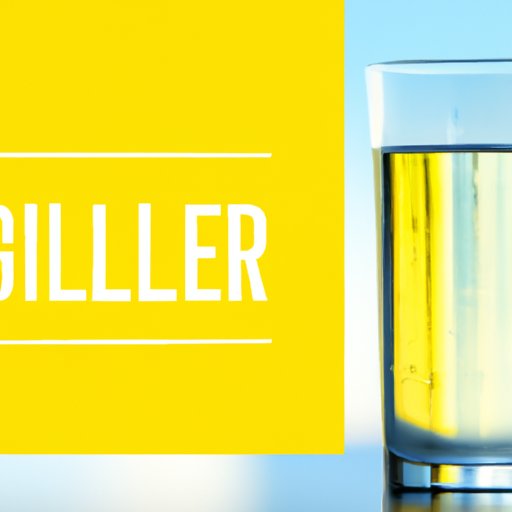
Introduction
Staying hydrated is essential for healthy living, yet many of us don’t drink enough water. Our bodies are about 60% water, and we need it to help carry out vital functions such as digestion, absorption, and circulation. In this article, we explore how much water you need a day and why it’s important to prioritize hydration.
Importance of Staying Hydrated
Water plays a crucial role in our bodies. It helps transport nutrients, flush out waste products, lubricate joints, and regulate body temperature. When we don’t drink enough water, our bodies can’t function properly, leading to symptoms such as fatigue, headaches, and constipation.
Debunking the 8 Glasses a Day Myth
Many of us have heard the recommendation to drink eight glasses of water a day, but do we really need this exact amount? The truth is that there’s no one-size-fits-all approach to hydration. The “8 glasses a day” rule was popularized in the 1940s based on the average water intake of a healthy adult. However, factors such as age, gender, weight, and activity level can affect how much water you need.
Calculate your Daily Water Intake
So, how much water do you actually need? A general formula to calculate your daily water intake is to divide your weight (in pounds) by two and drink that amount in ounces. For example, if you weigh 150 pounds, you should drink 75 ounces of water per day. However, this formula is only a rough estimate, and individual needs can vary based on factors such as age, gender, and activity level.
The Benefits of Drinking Enough Water
Drinking enough water can have numerous health benefits. Staying hydrated can improve digestion, boost brain function, promote clear skin, and support the immune system. Additionally, proper hydration can enhance physical performance by reducing fatigue and regulating body temperature.
Signs of Dehydration
It’s important to recognize the signs of dehydration so you can take action before symptoms worsen. Common signs include feeling thirsty, having a dry mouth, dark urine, and feeling fatigued. If left untreated, dehydration can lead to more severe symptoms such as dizziness and confusion.
Meeting your Daily Water Requirement
So how can you meet your daily water requirement? One easy method is to carry a water bottle with you throughout the day and sip water regularly. You can also set reminders to drink water or use apps that track your water intake. To increase water consumption, try drinking a glass of water before each meal or adding flavorings such as lemon or cucumber to your water.
Incorporating Water-rich Foods
Did you know that some foods contain a high percentage of water? Fruits such as watermelon, strawberries, and oranges are great options for increasing hydration. Vegetables such as cucumbers, tomatoes, and lettuce can also help boost water intake. Incorporating these foods into your diet can provide both hydration and nutrient benefits.
Conclusion
In conclusion, staying sufficiently hydrated is essential for optimal health and well-being. There’s no one-size-fits-all approach to hydration, but calculating your daily water needs and incorporating water-rich foods can help build a healthy hydration routine. By prioritizing hydration, you can enjoy a range of benefits, including improved physical performance and overall wellness.




